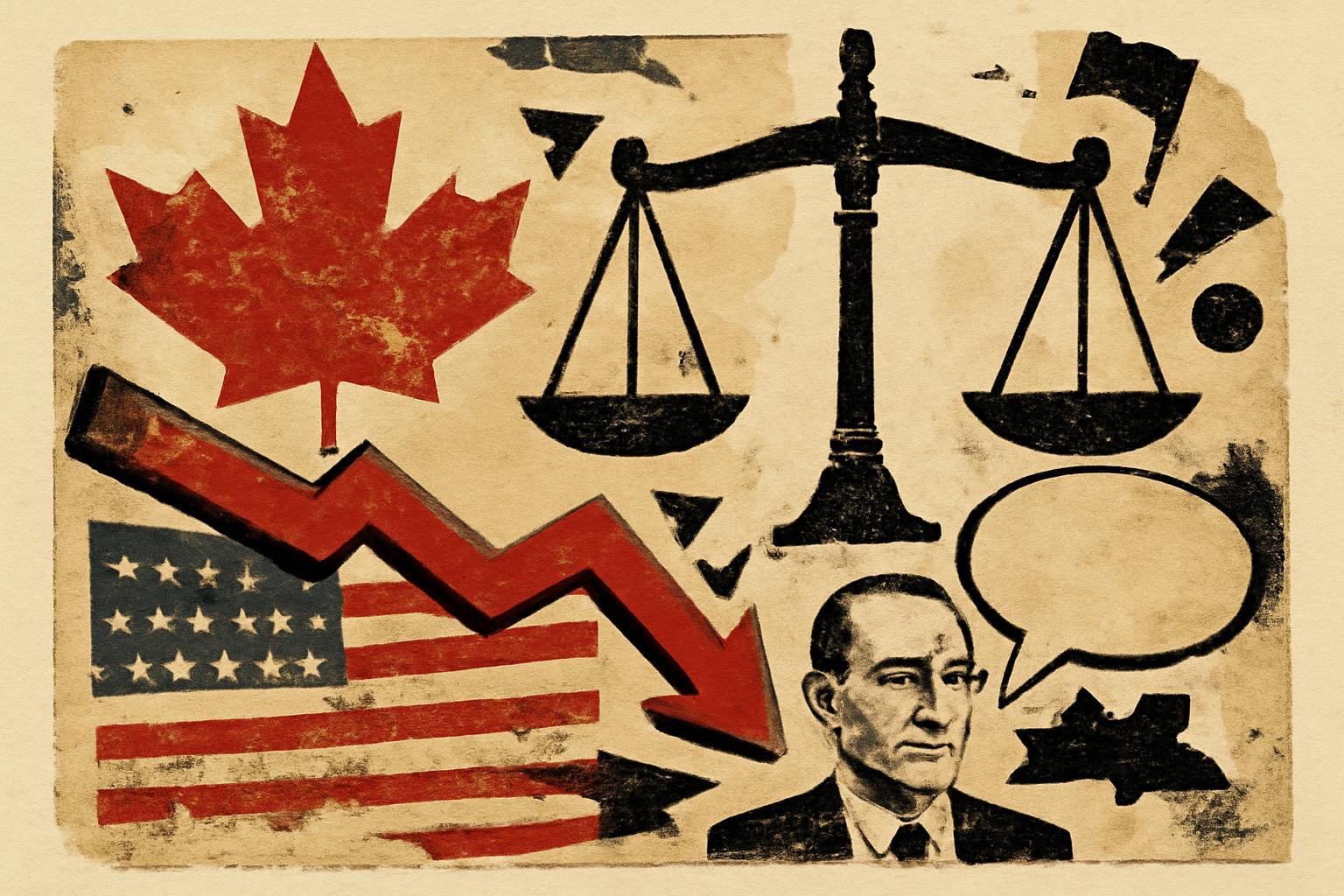Ottawa is pulling back most of its retaliatory tariffs on the U.S., starting September 1, leaving in place only a sliver of protections for goods outside the USMCA, plus persistent barriers on autos, steel, and aluminum for now. Washington has signaled a willingness not to hit Canadian goods that meet USMCA rules, and Ottawa says it will mirror that approach. The goal is to jolt talks about a broader strategic economic-security pact back to life, with Carney arguing that Canada already has substantial tariff-free access and that preserving that edge for Canadian workers and firms matters as talks proceed. Ontario’s move to suspend a planned electricity price rise against three U.S. states is a related note of the ongoing energy-and-regulation interplay. In politics, Carney governs a minority Liberal administration reliant on opposition support, while the Conservative leader accuses him of softness toward the United States. He had campaigned on resisting Trump’s tariffs but has moderated his stance as talks stall.
From a libertarian vantage, this entire episode is a stark reminder of why the state should barely touch trade at all. Tariffs are not neutral tools of policy; they are coercive taxes exacted by the state to pick winners and punish losers in the name of national interest. The real effect is distorted prices, retaliatory spirals, and diverted resources—costs borne by consumers, workers in non-protected sectors, and small businesses that rely on affordable inputs. If the aim were truly competitive markets and peaceful exchange, the answer would be nothing more than voluntary trade between free individuals and firms, guided by price signals, contracts, and the rule of law—not by politicians allegedly “protecting” jobs through tariffs.
Hayek would remind us that knowledge is dispersed and that central planners cannot sense or compute the consequences of these tariffs across millions of market interactions. The moment you constrain cross-border prices or shield industries from competition, you shut down the very spontaneous order that makes economies adaptable, innovative, and prosperous. Tariffs create rents for incumbents, fuel lobbying, and rationalize further intervention in the name of “national security.” They convert comparative advantage into political currency and reward political favoritism over productive excellence.
Nozick invites a stricter standard: a legitimate state in a rights-respecting framework protects persons and their contracts, not the self-declared “national interest” through coercive taxation or trade barriers. Tariffs are a form of taxation that funds a state apparatus and transfers wealth from traders to politically favored groups. They violate the non-aggression principle at the border: you don’t initiate force against others to bend market outcomes; you simply secure rights and enforce voluntary exchanges. The minimal state, in Nozick’s vision, would be far more compatible with a world where people freely contract with whomever, wherever, and trade under enforceable rules rather than under tariffs or tied-to-nation pacts that command allegiance to a political boundary rather than to universal rights.
Rand would insist that free trade is a direct expression of rational self-interest, grounded in individual rights and the sanctity of voluntary exchange. The claim that tariffs “protect workers” or “secure national interests” collapses under the simple moral test: does coercing someone to subsidize a protected industry respect the other person’s rights? Free trade is not merely economic efficiency; it is a moral stance against coercive redistribution disguised as public policy. A genuine defense of liberty sees no legitimate role for tariffs to maintain some manufactured “advantage” at the expense of price signals and consumer sovereignty.
If the objective were real security and prosperity, the answer is to shrink the state, abolish tariffs, and let competitive markets allocate resources through voluntary cross-border exchange. Privatize or abolish sectors where state manipulation is entrenched, respect contracts, and rely on private mechanisms for mutual defense and dispute resolution. The only durable peace and prosperity come from markets unshackled by political fiat, not from agrarian fantasies of national self-sufficiency enacted at the border.
